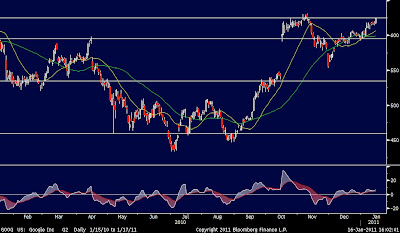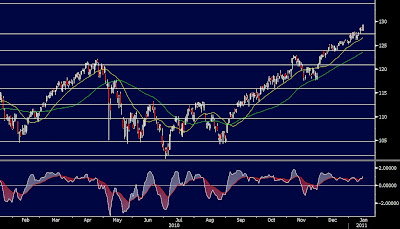
Sunday, January 16, 2011
Stocks To Watch in 2011

Kicking The Can Further Down The Road
The emerging world has experienced high levels of growth, but it is entering a period of rising inflation. How emerging economies handle that inflation will be the decisive factor for the industrialized world. If they decide to fight inflation with really restrictive monetary policies, we're in trouble. If they hike interest rates only a little to restrain growth, the cycle can be extended. But that means later on, perhaps in a year or two, they will have much higher inflation and will have to crunch it. The choice is between more growth in the short term and then a crunch, or a more serious bear market now.
Rather sooner than later, we are going to be in trouble again. With the S&P500 trading almost at 1300 and the Dow Jones Industrial just below the 12´000 barrier, I don´t see a good risk reward for equity markets at this point in time. There are some individual names that are looking extremely interesting, but for now, I would rather buy the dips, than chase the rallies. I expect a correction in Q1 of about 10 %, followed by a rally, that could take us higher, but it will be the start of distribution phase, marking the next big top in the current secular bear market. For a trader it should be a good year. For an investor, I see it rather difficult.













